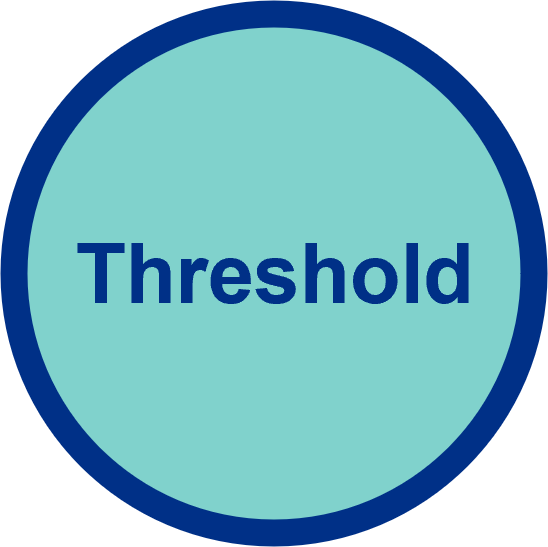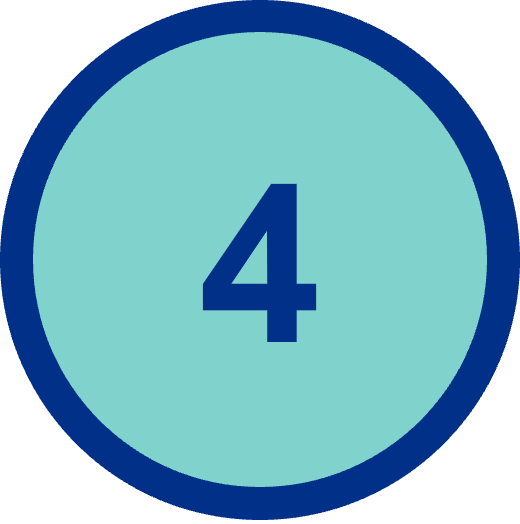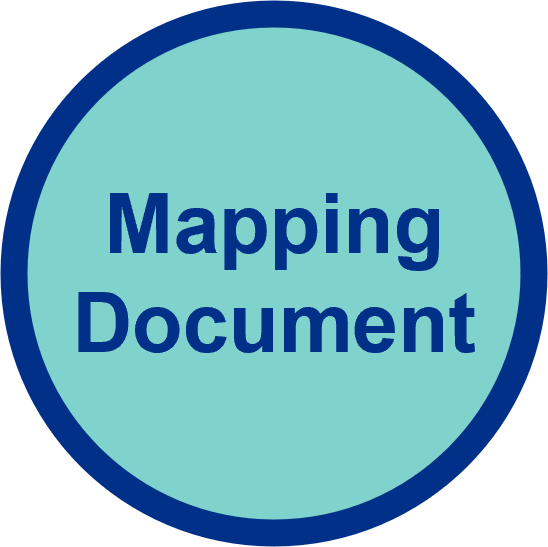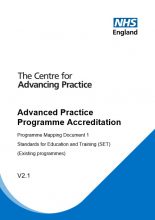Standards for Education and Training V2.1
Threshold requirements
- The programme is an existing Advanced Practice programme.
- The programme has been validated by a higher education institution (HEI) and full programme specification is submitted (if the programme is being taken through an HEI validation process at the same time as being considered for programme accreditation, this may preclude the submission of a full set of documentation until the process is complete).
- The programme is at level 7 (in line with the Advanced Practice capabilities) and leads to a postgraduate award, normally a full MSc (Master of Science).
- There is a completed mapping document of the Advanced Practice Framework (capabilities) and the SET to specific programme components i.e., modules and assessments.
- If the programme includes any element that requires external validation/ approval such as independent prescribing this must be evidenced.
- NHS England Local Office Advanced Practice Lead made aware of submission and indicates support for the programme.
- NHS England Regional Quality Team made aware of submission and confirms if there are any educational quality issues with the programme, if an education improvement plan is in place or if they have any other concerns regarding the quality of the programme.

Person-centred approach
1.1 The programme places patients at the heart of professional learning and development and reflects the values of the NHS Constitution, regardless of where care/learning occurs.
1.2 Patients and carers are actively engaged in the programme’s design, delivery, evaluation, review, and onward development.
1.3 The programme ethos, design and delivery ensure that the learning process:
- Treats patients with respect, compassion, and dignity
- Upholds patients’ confidentiality
- Supports and promotes safe, effective, person-centred, compassionate care.
1.4 The programme entry requirements protect patients by ensuring that learners meet essential pre-requisites relating to:
- Work based learning/placement requirements, where applicable
1.5 Governance arrangements are in place for all programme components to ensure:
- Patient safety
- When this is relevant to their care, Patients are informed of the status of registered practitioners as learners on the programme
- Patients are enabled to give their informed consent for their engagement with practitioners as learners
- The transparency of the learning process, including in work-based settings
- The integrity, quality and value of the learning experience.
1.6 The programme includes processes to manage concerns about learners’ progression, professional suitability and fitness to practise.

Learner-centred approach
2.1 The programme enables learners to demonstrate fulfilment of all the Advanced Practice level capabilities in ways that fit with their profession, scope of practice, job role, and professional development needs.
2.2 Equality and diversity policies underpin all aspects of the programme’s delivery (including its admission processes), with their implementation monitored to foster equality of opportunity and to respect diversity.
2.3 Applicants and their employers have access to clear and accurate programme information, including on:
- Requirements relating to admission, attendance, supervision and work-based learning
- Learner support arrangements and requirements (in both academic and work-based settings, and in relation to any placement learning away from the learner’s workplace)
- The programme’s learning outcomes, content, structure, and assessment
- Programme fees and any additional costs or resource requirements associated with its completion.
2.4 The admissions process seeks to optimise the prospect of learners completing the programme successfully, including by clearly addressing:
- Required prior professional knowledge, skills and experience
- Aptitude and commitment to learn at level 7
- Time and study commitments to complete the programme successfully
- Access to opportunities for learning in the workplace and other employer support to complete all programme components.
2.5 Selection to undertake the programme and admission onto it is made by the programme team, supported by the education provider’s standard recruitment processes.
2.6 Systems are in place to identify and address the needs of learners who require additional support to engage with and complete the programme.
2.7 Procedures are in place to consider prior learning for entry to and/or exemption from specific components of the programme, in line with the education provider’s standard regulations and the programme’s specific learning outcomes.
2.8 Learners are supported to embark on and progress through all stages of the programme, including through:
- Advice on preparing to engage with the programme induction
- Access to learning resources
- Academic support
- Pastoral support
- Supervision arrangements for work-based learning components.
2.9 Learner supervision within the programme is:
- Co-ordinated across the programme’s academic and work-based components
- Appropriate to each learning and teaching component and their integration
- Focused on managing risk and upholding patient safety
- Responsive to learners’ needs at each stage of the programme and to their learning progression
2.10 Learners receive regular feedback on their progress:
- In both the academic and work-based components of their learning
- In areas for their on-going professional development
2.11 The maximum duration for learners’ enrolment on the programme to complete it successfully is clear and implemented in line with the education provider’s:
- Standard regulations
- Any programme-specific regulations
- Protocols for approving interruptions to enrolment
- Arrangements to ensure all individuals’ learning remains current.
2.12 Learners know how to raise concerns about the quality of the programme through accessible, clear processes.
2.13 Learners know how to raise concerns about potential risks to patients or staff in a work-based setting in which they undertake programme learning.
2.14 Learners know how to access and use the education provider’s student appeals process.

Learning in the workplace
3.1 The programme is demonstrably responsive to employers’ requirements and expectations in its design and delivery.
3.2 The assessment of the learning in the workplace component is clearly articulated in the programme specification and this component contributes to the overall award.
3.3 Employer and Service Commissioner perspectives are actively sought at all programme stages, including in relation to;
- Priority learning and development areas to meet patient, service delivery and workforce development needs
- Optimising support for learning in the workplace
- Communication between the learner, work-based learning supervisor(s) and education provider
- Overcoming potential barriers to work-based learning and its quality
3.4 The programme team keeps the individual’s learning in the workplace under regular review and has processes in place to address emergent issues and needs.
3.5 The learning in the workplace experience created within the programme is appropriate to the breadth of learners’ individual needs while being in line with the programme’s intended learning outcomes.
3.6 Each learner has a designated supervisor/s for the programme’s duration who:
- Has the requisite personal knowledge and skill at Advanced Practice level to act in this role
- Can oversee and advise on individual learning needs and progression.
3.7 The programme team provides employers and supervisors with guidance on the responsibilities and expectations of taking on the supervisor role.
3.8 The programme team encourages and supports:
- Experienced health and care professionals (in addition to those in a supervisor role) to contribute to multi-professional, collaborative learning to support the programme’s delivery
- Learners’ engagement with learning opportunities beyond their workplace to add breadth to their knowledge and skills development (e.g., through specialist clinics visits and professional networking).
3.9 The programme team reviews individual learning in practice on a regular basis and addresses any issues in a timely manner.
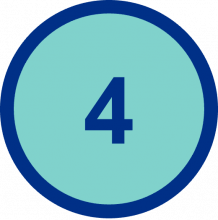
Programme content
4.1 It is explained how the programme design and curriculum content:
- Facilitate and develop Advanced Practice level learning across all the pillars of practice
- Integrates and blends learning to optimise experience and outcomes (within academic and learning in practice settings)
- Promote professionalism and consideration of ethical issues and personal scope of practice and competence (and their limits)
- Places a strong emphasis on
- Self-directed learning
- Accountability and responsibility for personal decisions and actions
- Collaborative practice
- Reflection on the management of complexity, uncertainty, and ethical issues
- Critical inquiry and evidence-based practice.
- High level of autonomy
- Clinical decision making
- Exercising of informed judgement
4.2 It is explained how the programme curriculum (and pathways within it) reflect area-specific capabilities at Advanced Practice level, where these exist.
4.3 It is explained how the programme curriculum is responsive to:
- The needs of service commissioners, employers, population health needs and patients
- Changes in models of care and service delivery, workforce/role/skills mix developments, and the evidence-based practice
- Contemporary clinical practice, current health and social care policy and national/international advanced practice research.
4.4 It is clear how the programme promotes and supports learners’ development within multi-professional and inter-agency teams, including by providing opportunities for inter-professional learning, teaching and collaboration.

Programme delivery
5.1 The programme’s design and delivery demonstrate:
- A logical sequencing of the programme components and the timeframe for their completion
- The integration of programme components, across academic and work- based learning and the pillars of Advanced Practice.
5.2 The range of learning, teaching and assessment methods used in the programme enables learners to develop and demonstrate fulfilment of the intended learning outcomes, and all capabilities within the Advanced Practice Framework.
5.3 Capacity and expertise are appropriate for the number and profile of learners recruited to the programme, including in relation to professions, specific pathways offered and relevant research areas.
5.4 Appropriate and sufficient human, learning, technological and physical resources, and a suitable environment for learning, teaching and assessment, are in place to sustain the programme’s delivery and to ensure effective, timely support to learners.
5.5 The programme team involved in the programme’s delivery are able to contribute safely and effectively, including through holding:
- Current registration with the relevant statutory regulator
- Appropriate professional qualifications (including in relation to learning and teaching)
- Appropriate levels of professional engagement and inter-professional collaboration.
5.6 The programme team involved in the programme’s delivery are collectively able to demonstrate:
- Expertise at Advanced Practice level
- Expertise in the particular practice areas covered in the programme.
5.7 Arrangements are defined and implemented to oversee and co-ordinate the programme’s work-based learning components, including to ensure the following:
- Their quality
- Their effective integration within the programme
- Regular, structured communication with those supervising and assessing individuals’ learning in practice settings.
5.8 The programme’s development, delivery and review are informed by contemporary research and a research-active and evidence-based practice culture.

Learner assessment
6.1 The programme requires learner assessment to cover all the pillars of Advanced Practice level practice and all the capabilities throughout the duration of the programme.
6.2 The programme requires learners to pass all programme components, with no compensation for any component or referrals.
6.3 Clinical and academic assessors include those:
- With clinical expertise
- With the appropriate professional background
- With expertise to assess learning at academic level 7.
6.4 Assessment feedback is programme and module learner-centred, timely and linked to the learning outcomes and assessment criteria.
6.5 Learners are made aware of their professional responsibilities in the event of their non- or unsuccessful completion of the programme for not misrepresenting the outcome of their learning or its implications for their professional practice.

Programme management
7.1 The programme is managed and resourced to:
- Provide a high-quality learning experience
- Maintain the programme’s viability and sustainability
- Ensure risks, issues and opportunities are kept under regular review and appropriately managed and optimised.
- Seek to build capacity and to sustain the programme’s ongoing delivery, including through encouraging and enabling alumni to contribute to the future cohorts.
- Maintain the programme’s viability and sustainability
- Ensure risks, issues and opportunities are kept under regular review and appropriately managed and optimised.
7.2 The programme award and title appropriately reflect the requirements of Advanced Practice level.
7.3 The programme exit awards do not imply eligibility for recognition where fulfilment of the Advanced Practice capabilities has not been demonstrated.
7.4 The education provider ensures responsiveness to the learning needs of different professional groups and specific workforce development needs, including through managing the inter-dependencies between core, optional and open/shell modules.
7.5 An appropriately qualified and registered health or care professional is the named lead for the programme and for any specific pathways offered within it.
7.6 Practitioners working at Advanced Practice level are part of the programme team and involved in the programme’s leadership, design, delivery, and review.
7.7 Communication channels between all parties involved in the programme’s development, delivery, administration and evaluation are clear, used and kept under review.
7.8 Supervisory arrangements and processes for learners within the academic and work-based settings in which their learning takes place are actively managed and kept under review.
